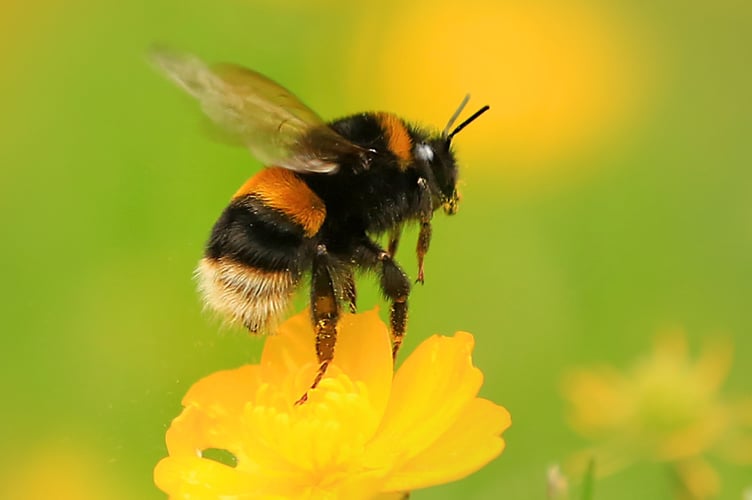
In a win for wildlife, the Department for Environment, Food and Rural Affairs (Defra) has refused to allow the emergency use of a banned pesticide on sugar beet to protect butterflies, bees and other pollinators.
I reported here about a year ago that a neonicotinoid pesticide – banned because of the harm it can cause bees and butterflies – was given a year’s conditional emergency approval in the UK for use in sugar beet production, for the fourth year in a row.
The application to use the pesticide Cruiser SB – which contains the neonicotinoid thiamethoxam – was made by British Sugar and the National Farmers’ Union, so the pesticide could be used as a seed treatment for sugar beet: it protects against aphids that carry a crop-damaging virus.
This was a powerful lobby: it may not be obvious to people in Surrey, but sugar beet is a vital national crop. As one who grew up living on the edge of the fens where much of the land was given over to sugar beet production, I appreciate that this staple crop is essential to the livelihoods of many across a wide area, both in farming and industrial sugar production from beet.
However, this year the same application was refused by Defra. It said the decision was made on robust assessments of environmental, health and economic risks and benefits, with advice from Defra’s chief scientific adviser and its economists, the Health and Safety Executive and the UK Expert Committee on Pesticides.
Defra said lethal and harmful risks the chemical could pose to honeybees and other pollinators could not be ruled out.
Defra’s decision came after 42,601 people signed an open letter from the charity Butterfly Conservation calling for a complete ban on the use of toxic neonicotinoid pesticides, without exception.
Environment minister Emma Hardy said: “Britain is one of the most nature depleted countries in the world. This Government is committed to protecting bees from toxic neonicotinoid pesticides, while working with our farmers to find new ways to protect crops and support a profitable farming sector.
“We recognise the threat that virus yellows can pose to sugar beet growers, and we will continue to support industry to develop alternatives to neonicotinoids on sugar beet that are effective at high levels of yellows virus infection.”
The decision has delighted conservationists. Julie Williams, CEO of Butterfly Conservation, said: “The decision to not allow the use of banned harmful neonicotinoids in the UK in 2025 is an important win for butterflies, our countryside and its custodians who want to see it thrive.
“It is clear through the support of Butterfly Conservation’s campaigning on this issue, and the actions of people across the country, that the magnitude of the nature crisis is a threat that concerns all of us, no matter where we live or work.
“This win is a testament to all the people who have campaigned against pesticide use – from nature friendly farming groups to after-school clubs and community networks. Together, we can bring butterflies back from the brink through actions like this.
"The Government must now follow through with permanently banning the use of these pesticides, with no exception. Butterfly Conservation looks forward to working with Defra using the latest science and data from our world-class resources to remove all obstacles to the recovery of our pollinators..”


.jpeg?width=209&height=140&crop=209:145,smart&quality=75)


Comments
This article has no comments yet. Be the first to leave a comment.